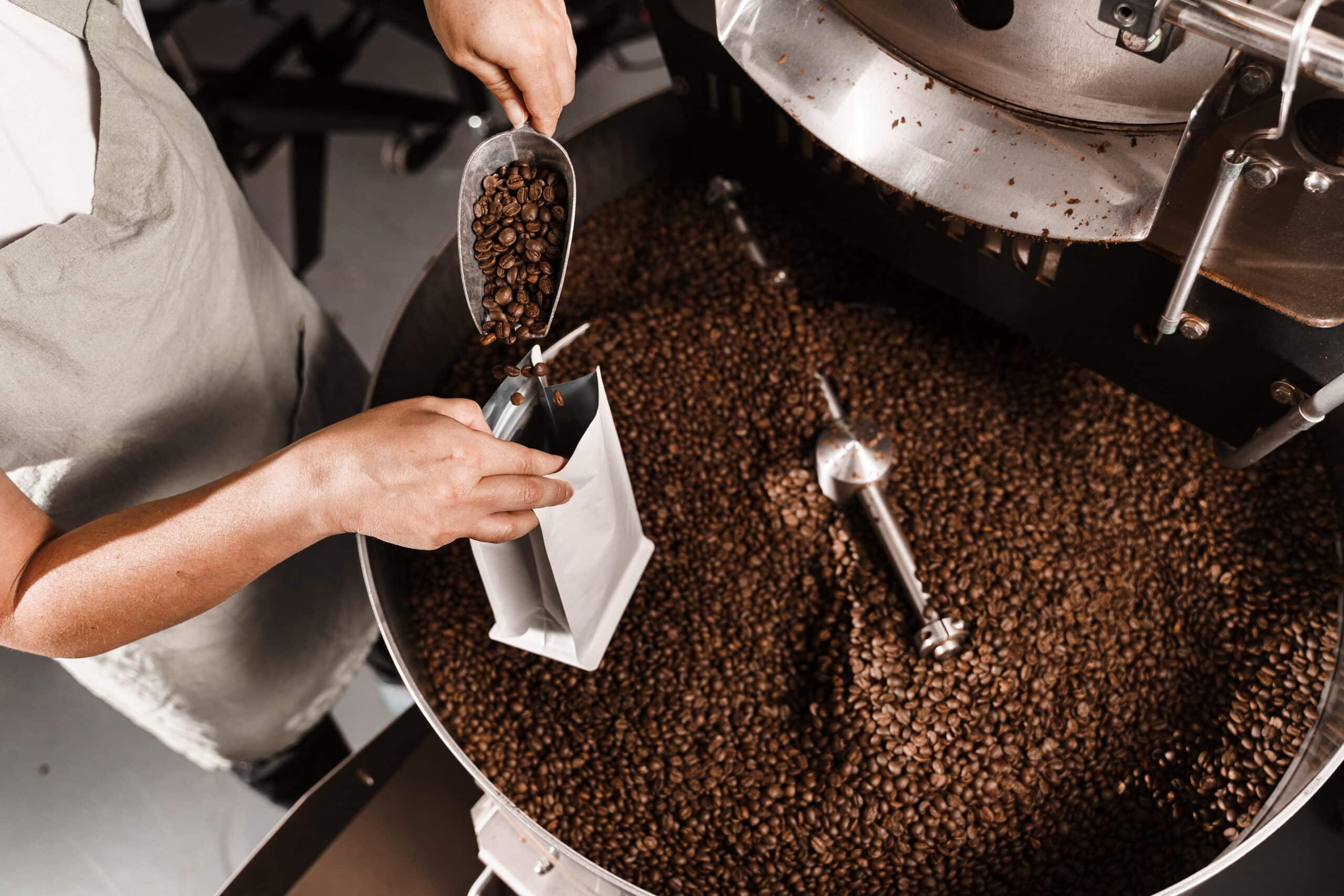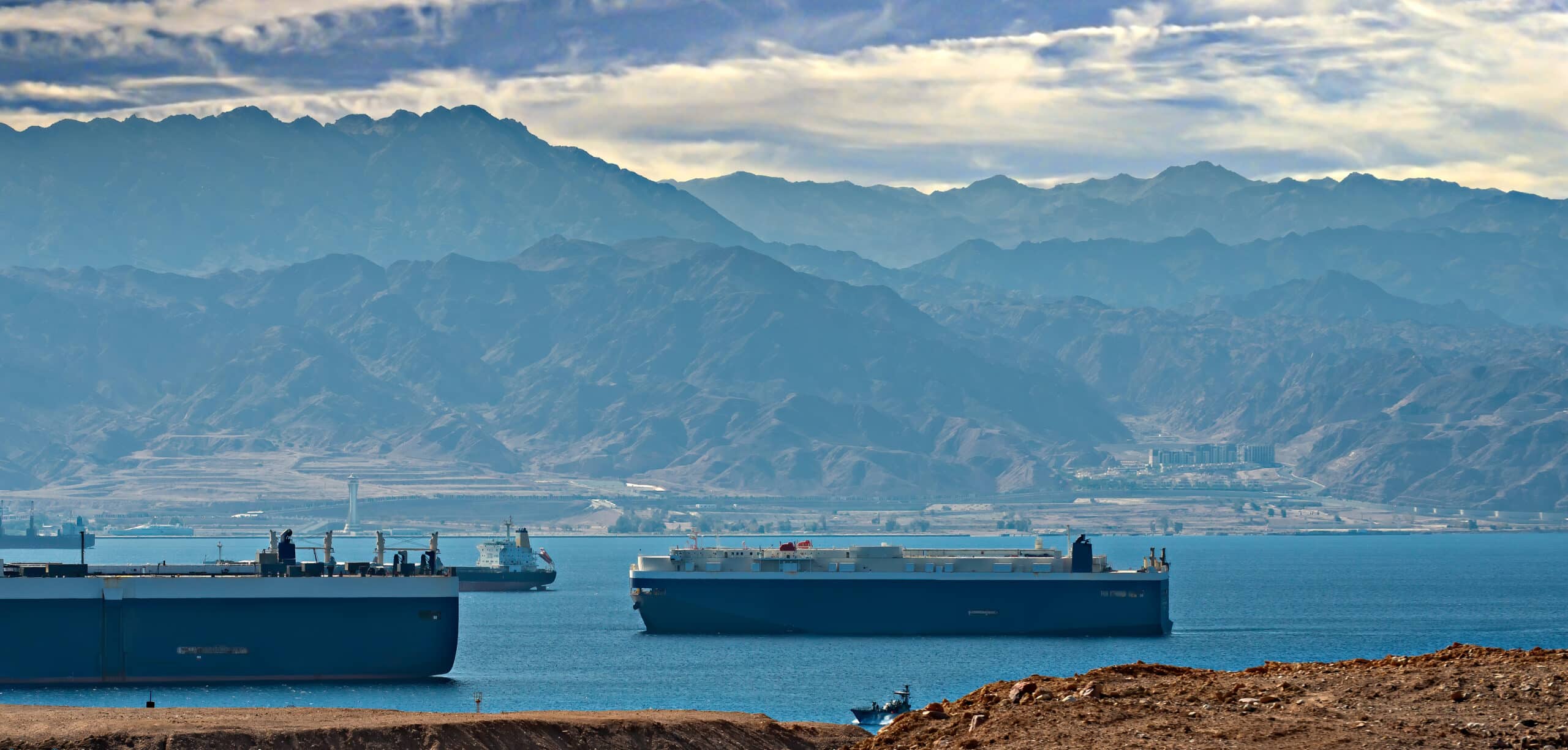The global coffee supply chain is currently navigating a period of significant volatility. Climate change, production vulnerabilities, and economic pressures have converged to strain supply, create market instability, and exacerbate sustainability concerns. This article explores how climate change is impacting the global coffee supply chain, and outlines some emerging strategies to help stabilise and future-proof the coffee industry.
The impact of climate change on the coffee supply chain
Coffee production is concentrated within the tropical “coffee belt”, with Brazil and Vietnam alone accounting for over 55% of global output. However, climate change is progressively disrupting production dynamics and posing significant risks to coffee farmers. In recent years, unpredictable weather patterns, rising temperatures, and extreme events such as droughts and frosts have severely hampered yields.
In response, producers and stakeholders are focusing on climate adaptation. This includes planting at higher altitudes, shifting toward more resilient varieties, and embracing shade-grown agroforestry systems that protect natural ecosystems.
As the impacts of climate change persist, coffee is undoubtedly becoming more expensive. This is compounded by the fact that many coffee producers are holding back sales in anticipation of further price surges. Arabica prices rose by 13% in December 2024, exceeding a 60% year-on-year increase, while Robusta prices doubled compared to 2023 levels. The response to supply uncertainties and reduced inventories from the coffee futures market has been dramatic, with ICE Futures US New York Arabica contracts reaching record highs in early 2025. This upward price trend looks set to continue, with Brazil, the world’s largest coffee producer, forecasting a 4.4% drop in production in 2025 and Arabica production expected to decline by 12%.
Ultimately, the burden of rising costs is fronted by the end-user. This naturally creates significant challenges for retailers, who must adapt pricing strategies while trying to maintain a competitive market position. Going forward, specialty coffee brands and cafés that rely on consistent high-quality coffee may face added difficulties of sourcing high-grade beans in shrinking markets. If climate change (and consequently, supply constraints) persist, pricing pressures and the need for alternative sources of coffee will become more pronounced. Inevitably forcing retailers and producers to explore alternative suppliers or lower-quality blends.
At the same time, ethical consumers are demanding greater levels of transparency within the supply chain, prompting regulatory scrutiny and stricter traceability requirements. This compounds retailers’ and producers’ challenges, as they must invest in compliance mechanisms, further driving up costs and complicating procurement strategies.
Rising sustainability concerns
The impact of climate change has understandably fuelled sustainability concerns from both the industry and the farmers themselves. At the industry level, climate change is fundamentally altering production dynamics. Arabica, which accounts for over 55% of all coffee produced worldwide, is particularly vulnerable to rising temperatures. Optimal growing conditions are limited to narrow temperature bands (approximately 18–22 °C), and if current trends continue, suitable growing areas for Arabica could shrink by up to 50% by 2050. This not only threatens the livelihood of millions of smallholder farmers but also poses a significant risk to global coffee supply chains.
At the individual level, climate change exacerbates the precarious social and economic circumstances of the smallholder farmer. Approximately 60% of the world’s coffee comes from smallholder coffee farmers, ~44% of whom live below the poverty line, with ~22% living in extreme poverty. Extreme weather events have significantly impacted yields, exacerbating economic hardships and increasing vulnerability among these farmers. Ensuring fair compensation for farmers will be key to ensuring long-term supply stability. While government, industry and NGO initiatives aimed at promoting price premiums for sustainable coffee are helping to address these economic inequities, much work still needs to be done.
At the same time, traditional farming practices are being criticised for their negative impact on biodiversity and their contribution to global warming. Coffee cultivation accounts for ~100,000 hectares of deforestation each year. While this figure is relatively modest compared to commodities like cattle ranching or palm oil, coffee farms have a tendency to encroach on forests that are rich in biodiversity, such as Uganda’s tropical highlands or Costa Rica’s cloud forests. Regulatory developments such as the EU’s Deforestation Regulation (EUDR) have been introduced to help curb deforestation but may also have the unintended consequence of exacerbating smallholders’ woes by limiting market access for those unable to comply with stringent traceability requirements.
Further down the supply chain, processing methods have faced similar criticism, particularly regarding water use. Washed processing can use up to 130 litres per kilogram of coffee cherries, producing vast amounts of wastewater. Once discharged, untreated coffee wastewater can contaminate rivers and streams, depleting oxygen, harming aquatic life, and fuelling yet more sustainability concerns.
Adaptation strategies: Innovations in coffee cultivation
Given the threats posed by climate change, the coffee industry is exploring a wide range of adaptation strategies, including species diversification, breeding initiatives, and implementing advanced agronomic practices. International multi-location variety trials have generated critical knowledge for coffee producers and agronomists about how varieties respond to different soil and climatic conditions, providing vital insights into which cultivars will perform best under projected climate change scenarios. This may prove crucial for accelerating the adoption of climate-resilient coffee varieties across different agro-ecological zones.
Coffees such as Liberica, Excelsa, and Stenophylla are being reconsidered by many for their climate resilience and unique flavour profiles. In particular Stenophylla could represent a potential breakthrough for coffee farming in warming climates, as it combines Arabica-like flavour with an ability to thrive at significantly higher temperatures—up to 6–7°C warmer than Arabica’s optimal range. While still in its infancy, researchers and local farmers are working to commercialise Stenophylla, with early trials showing promising results.
In addition to existing cultivars, the development of new coffee varieties represents another potential pathway to climate resilience. Breeding programmes can create cultivars with enhanced tolerance to heat, drought, and pests, with previous initiatives having already yielded disease-resistant varieties such as Ruiru 11 and Batian in Kenya.
However, it is worth noting that many coffee-producing countries lack the infrastructure to conduct large-scale multi-environment trials. As such, strengthening national and regional breeding programmes will likely be necessary to ensure the successful development, adaptation, and adoption of climate-resilient coffee cultivars in these regions. At the same time, geographically diversifying supply chains will be crucial to mitigating some of the risks associated with extreme weather events and ensuing market fluctuations. Coffee-producing regions, such as China’s Yunnan province, Burundi, and Papua New Guinea, are already emerging as alternatives to traditional market leaders. Further development in these regions will likely become integral to stabilising global supply, as investment in infrastructure, farmer training, and market access ought to significantly enhance their capacity to contribute to global coffee markets.
Technology too will have a role to play. Traditional breeding methods have proved slow and resource-intensive. This has prompted increased investment in biotechnology-driven methods such as Marker-Assisted Selection (MAS) and Genomic Selection (GS). These methods enable faster identification and development of desirable traits, reducing the time required to produce more resilient varieties. Meanwhile, in vitro plant tissue culture and synthetic polyploidisation techniques have been used to accelerate the propagation of resilient cultivars and enhance genetic diversity. These advanced techniques not only reduce the time needed to get improved coffee varieties to farmers but also enhance uniformity, plant vigour, and resilience under changing climatic conditions. Going forward, lab-grown coffee—where coffee plant cells are cultivated in bioreactors—may also provide a sustainable alternative to traditional cultivation; however, regulatory and economic barriers remain.
A forecast for the globe’s coffee supply chain
The global coffee supply chain faces unprecedented challenges brought on by climate change. Addressing these issues will require the development of climate-resilient coffee varieties, the diversification of production sources, greater supply chain transparency, and more support for smallholders.
At Farrelly Mitchell, we are committed to advancing sustainable agricultural practices and fostering resilience within the coffee industry. Our sustainability experts provide actionable insights on the most effective strategies for ensuring supply chain stability, promoting sustainable farming methods, and enhancing economic opportunities for coffee producers. Our expertise spans capacity building, programme development, community empowerment, supply chain optimisation, traceability and transparency and much more. To learn more about how we can support your organisation, get in touch today.














